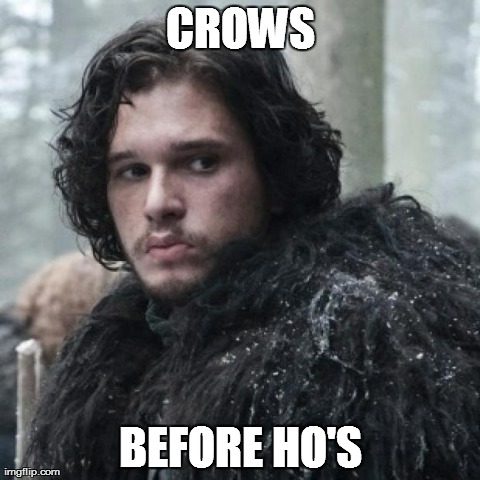And more to the point, this isn't a slaughter that leaves us with hope for some future pay-off. Maybe Arya Stark, who witnesses some of it, will grow up and get revenge on her increasingly long list of targets. Maybe Rickon Stark will become a great leader. Maybe there will be some karma. Maybe Daenerys and her dragons will eventually show up and burn the Freys and Lannisters, along with a lot of other people. But when Ned Stark was beheaded, we were offered the comforting possibility that Robb Stark would avenge him and now, in fact, we're seeing how that turns out. This time, there's no such comfort.
So why do we choose to watch Game of Thrones, now that it's turned into a carousel of death, torture and mutilation, culminating in last night's Red Wedding? A couple of reasons, maybe:
1) We know that none of this is entirely random, and we're seeing the results of decisions people have been making all along. Which makes it worse, in a way, but more fascinating.
2) The rising climate of violence only makes the small acts of kindness or mercy that we keep seeing more vital and significant. In this episode alone, there are a couple of attempts to spare an old man's life, one of which turns out okay.
<snip>
In the middle of so much death and horror, the episode offers us two kinds of hope for the Stark family, one rooted in magic and the other in conventional martial skills. And both of them only possible because the Starks showed kindness to a Wildling woman who attacked them in the woods, when they were still at the height of their power.
This show, and the books it's based on, manages to surprise us with hope as much as it does with atrocities and maybe that, after all, is why we're so addicted to it.





